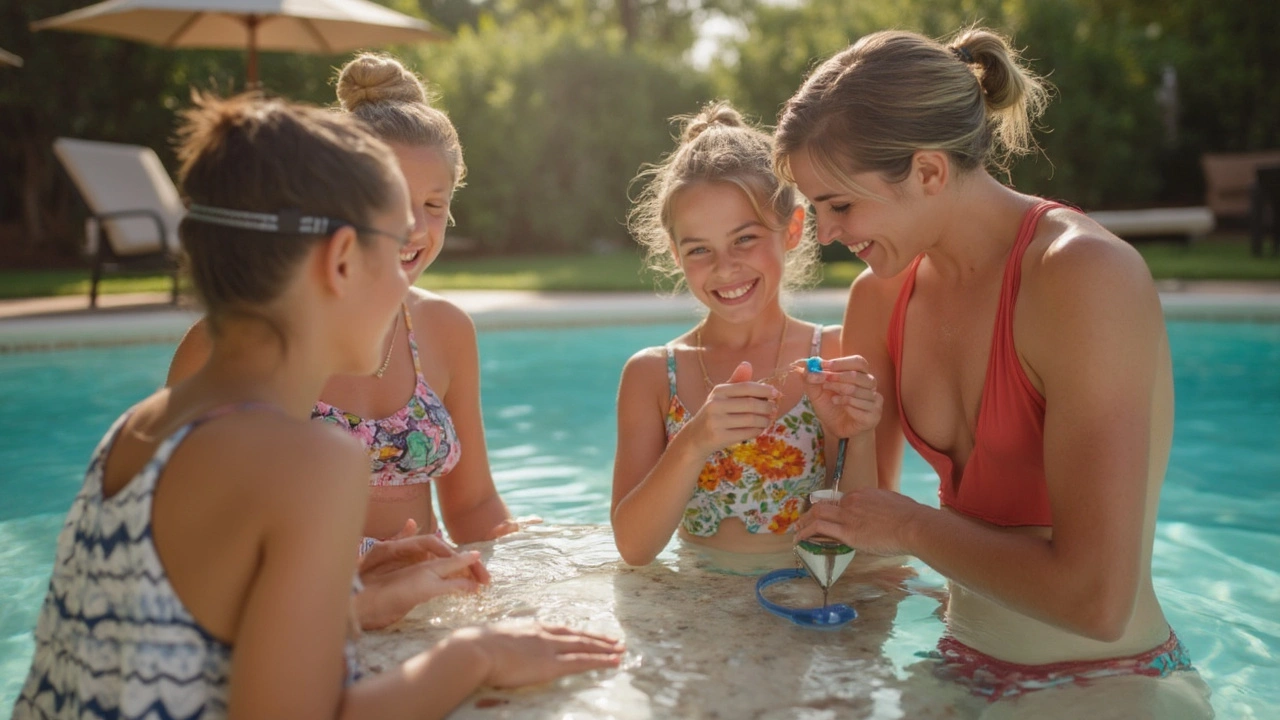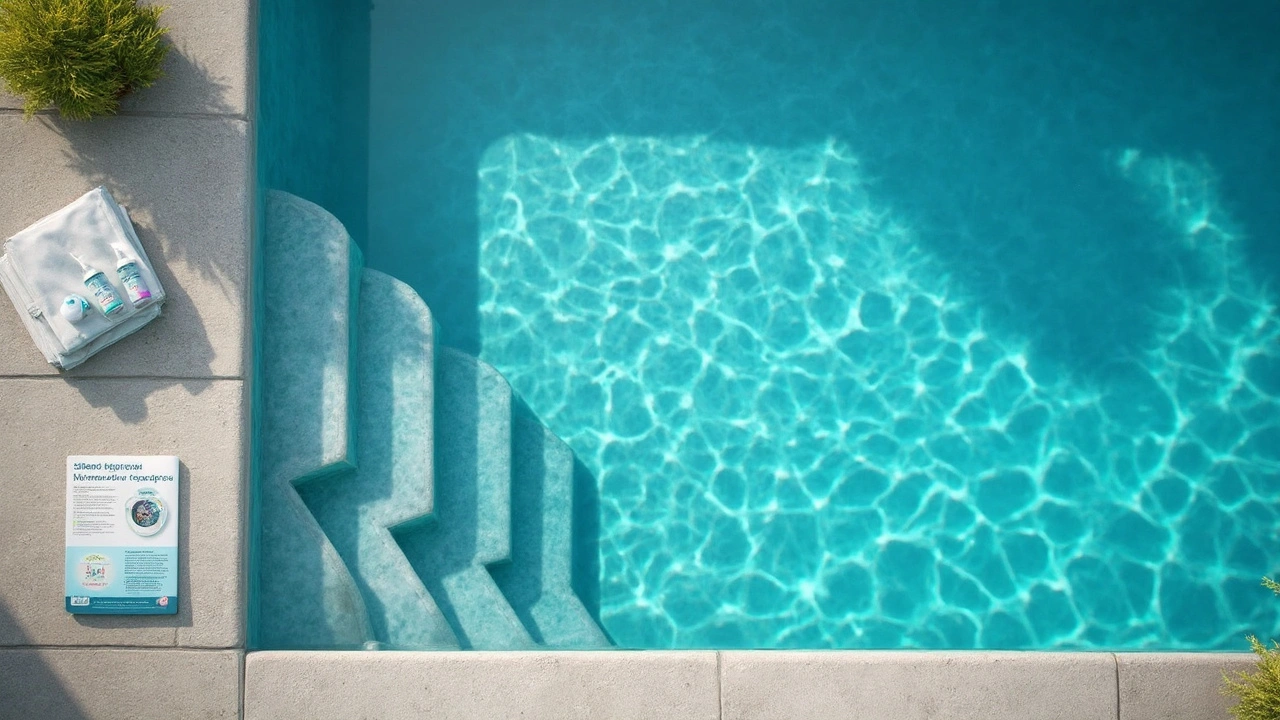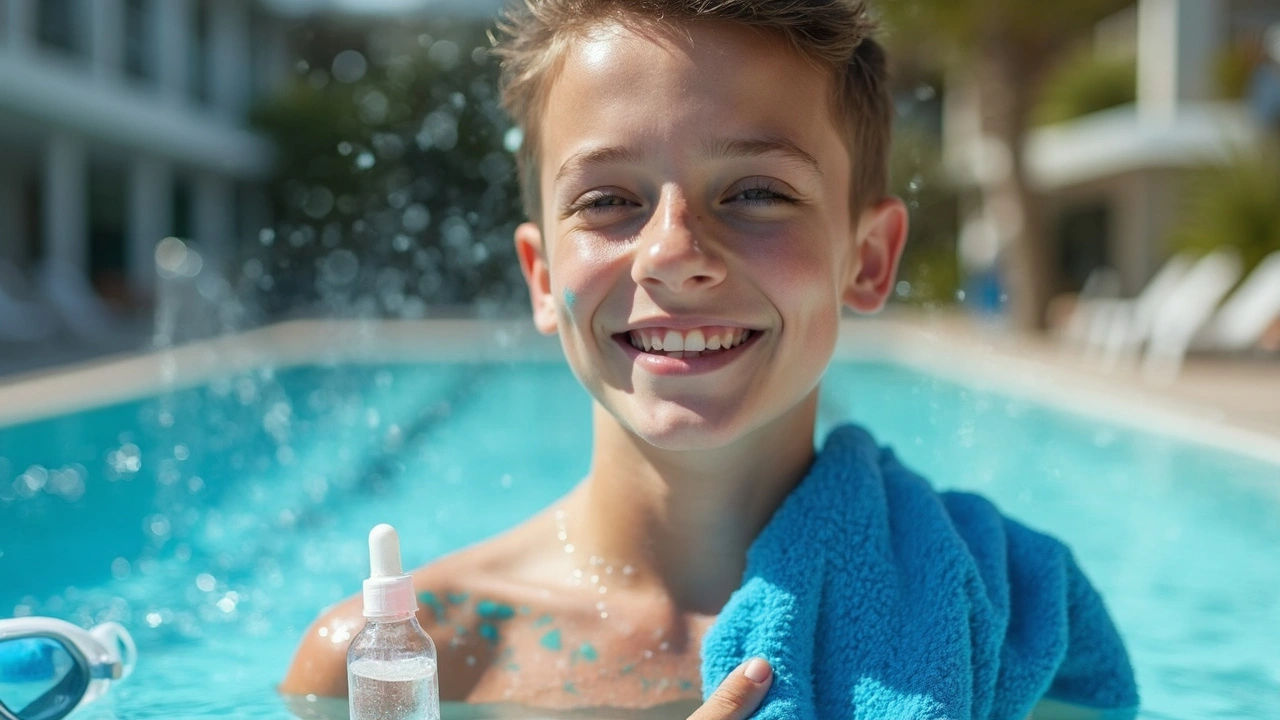Ever walked out of the pool looking like you just watched a tearjerker or spent the night crying over your ex? Chlorine-red eyes are pretty much a sign you went for a swim, but man, they can ruin your day. Sure, red eyes aren’t exactly dangerous on their own, but looking like you lost a boxing match isn’t anyone’s idea of post-swim style. Here’s the kicker though: it’s not just swimmers who battle this. Even the occasional splash in a hotel pool can leave you with fiery, uncomfortable eyes—and everyone asking if you’re alright. Ready for the real scoop on why this happens and how to fix it? Let’s get those eyes looking bright and chat about what actually eases that redness once you’re out of the water.
Why Swimming Makes Your Eyes Red
That stinging, bloodshot look starts with more than just chlorine. Sure, pool chemicals are part of the problem, but it’s actually a chemical cocktail that forms when chlorine mixes with all the stuff swimmers bring into the water—think sweat, urine, sunscreen, and the like. That combo creates chloramines, and it’s the main culprit behind that burning, red-eyed misery.
What’s wild is the human eye isn’t built to handle life under the surface. When water messes with the thin tear film that covers your eye, it lets irritants get to work. This irritation sparks blood vessels in the whites of your eyes to swell, and boom—red eyes. The American Academy of Ophthalmology says, “Chlorine itself isn’t toxic, but if it mixes with organic matter like skin or urine, it forms irritants called chloramines. Chloramines cause most of the irritation swimmers experience.”
"The burning and redness from swimming are almost always from chloramine irritants, not plain chlorine."
— American Academy of Ophthalmology
But here’s the kicker—ocean, lake, and river swims can do the same. Natural bodies of water might not be chlorinated, but they’re loaded with bacteria, minerals, and even microscopic critters that can mess with your eyes. And saltwater pools can sting, too, if you’re sensitive. Ever noticed symptoms can get worse if you wear contacts in the pool? That’s because contacts trap irritants against your eye.
Other factors sneak in. Pool cleanliness, your own hygiene, water temperature, your eye health, and even how much you rub your face after swimming. Some people’s eyes are just more prone to inflammation, so if you’re one of those unlucky folks, it’s not your imagination.
Finally, environmental allergies or dry eye issues can double the reaction. Sometimes it’s just a bad combo: pollen floating in the water and your sensitive eyeballs. That can make a harmless swim feel like a hay fever meltdown.

Effective Ways to Reduce Eye Redness Fast
Alright, so you’re out of the pool, and your eyes are red like a stop sign. What actually helps? Most of us splash water on our faces and hope for the best, but there’s a smarter way to cool things down.
The first step: rinse. Freshwater, not more chlorine. Use cool, clean tap water or sterile saline solution. Blink a lot as you rinse—this helps flush irritants out naturally. Experts say saline works even better than straight tap water because it mimics real tears, helping your eyes recover their natural moisture barrier.
Next, reach for chilled compresses. Grab a clean washcloth, soak it in cold water—or better yet, pop it in the fridge for a few minutes. Lay the cloth over your closed eyes for 10–15 minutes while you chill (pun intended). The cold shrinks blood vessels in your eyes, helping take down swelling and redness. If you’re in a bind, even a bag of frozen peas wrapped in a thin towel works. Just don’t use anything filthy, or you’ll trade one problem for another.
Now, if your eyes feel crazy itchy, try preservative-free lubricating eye drops from the drugstore. Look for artificial tears, not those ‘get the red out’ drops, which can actually make things worse over time. You want something that just adds moisture, not medication. If you’re not sure which to buy, brands like Systane, Blink, and Refresh are usually safe bets.
- Super itchy? Don’t rub your eyes. Rubbing makes blood vessels pop up even more, dragging out the redness.
- If you wear contacts, ditch them right after swimming. Let your eyes breathe for at least a few hours before putting in a fresh pair.
- Stay hydrated. Water helps flush out toxins, and dry eyes always look worse when you’re low on fluids.
- Skip makeup for a few hours post-swim. It’s just more stuff for irritated eyes to react to.
- If allergies are a double-whammy, check with your doctor about antihistamine eye drops, but don’t just use anything off the shelf—some aren’t great for swimmers.
Bonus tip: If your redness doesn’t budge after a day, you get discharge, pain, or any vision changes, call up your doctor. Occasional redness is normal, but funky symptoms can mean infection, scratch, or something more serious.
If you’re swimming in natural water—lakes, rivers, oceans—rinse your eyes as soon as you get out. Never use tap water from questionable sources; in rare cases, contamination can cause eye infections that get nasty fast. The CDC even warns about a parasite called Acanthamoeba that loves unclean contact lenses and non-sterile water.

How to Prevent Red Eyes the Next Time You Swim
Okay, let’s talk prevention, because nobody wants to make red eyes a regular thing. First up, goggles are non-negotiable if you’re serious about eye health. Get a pair that fits snug, makes a good seal, doesn’t leak, and isn’t scratchy inside. Cheap goggles fog up and leak, so invest in a decent pair—your eyeballs will thank you.
Before you bomb into the pool, skip the lotions, makeup, and hair products if you can. The less you bring to the water, the less chloramine soup you help create. If you’re swimming in a public or hotel pool, take a quick shower before you jump in. It doesn’t just help your eyes; it keeps the pool cleaner for everyone.
Don’t swim with contacts if you can avoid it. Even with goggles, there’s a risk something sneaks in. If you absolutely must wear them, go with daily disposables and change immediately after your swim.
Don’t forget about pool maintenance—if you have a home pool, check chlorine and pH levels regularly. A well-balanced pool stings less. Public pools are (hopefully) well-maintained, but anytime you catch a whiff of heavy chlorine, it means the chemicals are working overtime to clean up all the organic gunk. High chloramines mean more red eyes.
Some people swear by moisturizing eye drops pre-swim. Adding an artificial tear drop before putting on goggles can give your eyes an extra barrier, even if it’s just temporary.
- Never share towels or goggles. Germs can transfer fast from one set of eyes to another.
- When swimming outdoors, wear a hat and sunglasses if you’re going to be in and out of the water. Sun can irritate redness, too.
- If you suffer from dry eyes year-round, check in with an eye doctor for a custom plan, especially if you swim daily.
- After swimming, rinse off before doing anything else—showers flush pool chemicals from skin, hair, and face.
- If you’re teaching kids to swim, make goggles part of their swim kit right away. Kids’ eyes are even more sensitive to irritation and infection than adults.
Here’s something wild: even Olympic swimmers deal with red, irritated eyes. You might think their training pools would be perfect, but according to Ryan Lochte, “No matter how clean the pool is, goggles are the only thing that save you. I won’t even do warm-up laps without them.” Next time someone teases you for rocking goggles, tell them you have your standards set at Olympic level.
Red eyes after a swim don’t have to be your new look. With the right habits and a little prep, you’ll be leaving the pool with nothing but fresh vibes and clear eyes. If all else fails, pull out your best shades, pretend you’re a celebrity dodging the paparazzi, and own your look. No one ever said recovery couldn’t be cool.







Nicole Carpentier
June 29, 2025 AT 06:23Love this post.
Hadrian D'Souza
June 29, 2025 AT 14:17Brandon Benzi
June 30, 2025 AT 10:11Abhay Chitnis
June 30, 2025 AT 11:46Robert Spiece
July 2, 2025 AT 11:40Vivian Quinones
July 2, 2025 AT 13:55